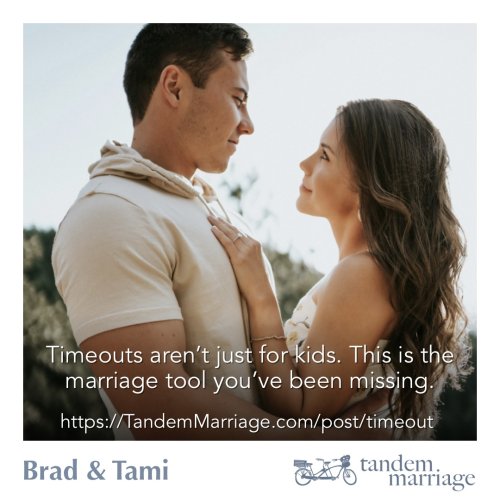Without a doubt, the number one request we get from the couples we work with is, "Can you help us with our communication?"
This request is always sincere and not completely off-track, but it is too vague to actually be helpful. The IDEA of great communication seems simple enough, but there are a hundred possible communication details between two well-meaning spouses, and any one or more of those details can get a couple off-track and cause otherwise good communication to deteriorate pretty quickly.
Some of the details of communication are pretty nuanced or don't occur very often. Others play a much more prominent role with couples. This is where the idea of "80/20 Listening" comes into play, since this will impact the majority of couples who desire to communicate better than they currently do.
WHAT IS 80/20 LISTENING?
80/20 listening is the solution, but what is the problem? The problem is that most spouses over-talk what they want to say by a country mile, which means they talk 5-10 times more than they need to. This means that they could make their point with 50 words, but they use 500 words instead. This is even worse when there is a conflict or a misunderstanding involved because a spouse's level of agitation can become escalated, causing them to be unaware of their over-talking.
Here is what it usually looks like. One spouse will make their point, then back it up with one or more examples, then switch into attorney mode where they defend their position, bring in corroborating evidence, list each person who agrees with them, and more. While this solid defense is being laid out by spouse number one, spouse number two is making mental notes of their opposing position, point by point, and trying to outdo any points made by spouse number one. In the end, spouse number one over-talks to make their point, then not to be outdone, spouse number two over-talks to make their rebuttal complete. And this cycle repeats itself over and over. You might be wondering, "With all of this talking, who can really be listening?" And that's precisely the point, if each spouse is spending 80% of their time and energy talking, that only leaves about 20% left for listening and understanding. This rarely turns out well.
"With all of this talking, who can really be listening?"
This is where 80/20 listening comes in. Instead of using 80% or more of your time and energy to talk, and only 20% of your time is left to listen and understand, flip that around so your are listening 80% and talking only 20%. This will be hard to measure, but the point is not to achieve 80/20 listening by hitting perfect percentages, the goal is to talk less so that you can listen more. Learning to listen more is the win here!
You might be thinking, "But if I am talking less and listening more, who will make my case for me?" Good question. When you and your spouse learn to listen better and validate each other, there is much less need to "make your case." In other words, when your spouse learns to listen to you better, they might say, "Ah, what you said makes a lot of sense and I can see why you feel that way." Take that in for just a moment. Think of a real-life scenario (a conflict or misunderstanding between you and your spouse), and imagine your spouse listening to the concise point you make, and saying, "Ah, what you said makes a lot of sense and I can see why you feel that way." When this happens, you will finally feel heard and understood, and therefore, you will not need to "make your case."
Summary
Making 80/20 listening a regular part of your communication health will take some practice. It is rare that good and helpful things occur in our lives by accident, instead they require a fair degree of intentionality and discipline; 80/20 listening is no different. Talk to your spouse about this idea of 80/20 listening. As a team, come up with ideas for putting this into practice in your marriage. Your future self will thank you!
This is such a great tool for every married couple. If you learn better by watching videos, consider joining our Member's Video Toolbox where we feature a video on time-outs, and many more—all with discussions questions and notes.
Check out our Member's Video Toolbox
DISCUSSION QUESTIONS:
1. Can you recall a time when you have over-talked something? Does this happen more for you in a heated moment?
2. Do you want to be heard during a conflict or misunderstanding? How would your spouse answer this same question?
3. Do you or your spouse tend to talk OVER one another? This means interrupting and not letting them finish what they were sharing. If so, is this contributing to your spouse feeling like they are not regularly heard? Ask them.
4. What are some ways to catch yourself and slow yourself down when talking or sharing your point of view?
5. Does 80/20 listening, or something close to it, seem like a reachable goal for you?
---
If you have any comments or questions about this post, we would love to hear from you using our contact form, linked in the footer.
By Brad & Tami Miller. Contact us at brad@TandemMarriage.com. Copyright © 2024
Link to: https://tandemmarriage.com/post/listening





